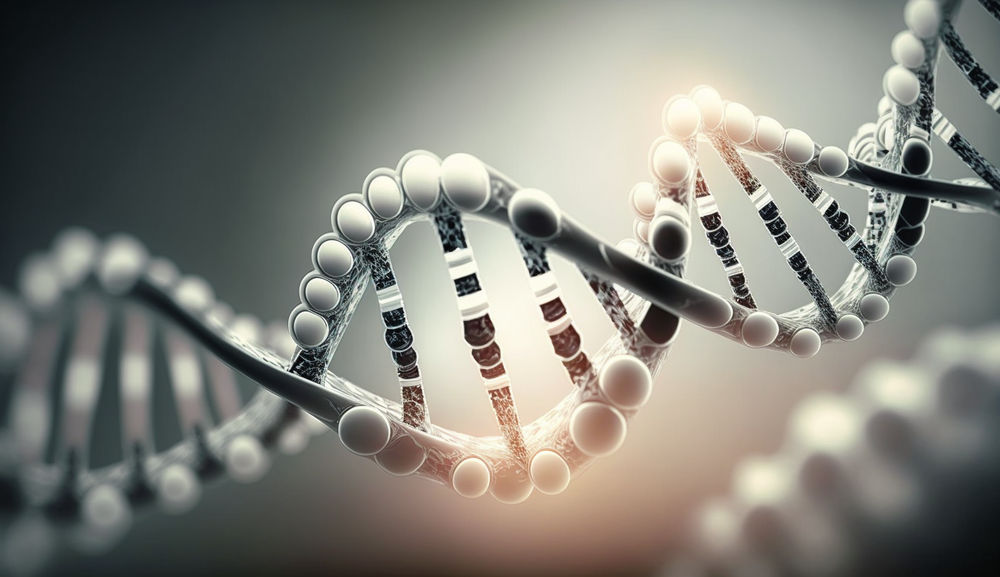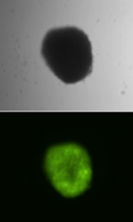1.2 million euros in funding for the production of "gene cabs"
Advertisement
The Dietmar Hopp Foundation is supporting the establishment of an experimental production unit for cardiac gene therapies at the Heidelberg Medical Faculty of Heidelberg University, in the Department of cardiology, Angiology and Pneumology at Heidelberg University Hospital (UKHD). The new production capacities for therapeutic viruses, the "gene cabs" to the diseased heart, strengthen the pioneering role of the Heidelberg Medical Campus in the development of new gene therapies. At the same time, gene therapy for chronic heart failure is taking a major step towards clinical application.
The path to applied gene therapy is long: not only must a genetic "repair kit" be developed for the disease-causing defect in the patient's genome and this - packaged in artificially created viruses - be safely transported to the treatment site in the body. It must also be possible to produce the loaded viruses in sufficient quantities. The team led by Patrick Most, Professor of Molecular and Translational Cardiology at Heidelberg University's Faculty of Medicine, has now made significant progress towards this important step thanks to a generous donation from the Dietmar Hopp Foundation: The foundation is funding the construction and operation of a highly complex production unit for therapeutic viruses with 1.2 million euros. The new equipment will enable the Department of Cardiology, Angiology and Pneumology at the UKHD to produce, purify and test the quality of these viruses in larger quantities than before.
Gene therapies have the potential to make previously incurable diseases treatable by correcting genetic changes that cause disease. To do this, intact copies of the damaged or blocked genes are introduced into the affected cells. Thanks to the "repair genes", the cells can at least partially resume their impaired functions. Viruses serve as transporters of the repair genes: these "gene cabs" dock onto the cells and transfer the genetic material. So-called adeno-associated viruses (AAV), which have long been used in medical research, are used for this purpose.
More than 15 years of research into gene therapy for chronic heart failure
AAV-based gene therapies are already being used successfully for individual diseases of the central nervous system, the eye or the liver. To ensure that patients with chronic heart failure can soon also benefit from this form of therapy, the working group led by Dr. Julia Ritterhoff and Prof. Dr. Patrick Most from the Molecular and Translational Cardiology Section of the UKHD has been conducting intensive research into suitable "repair genes" and gene cabs for more than 15 years and has successfully tested the procedure on mice. However, before the new gene therapy can be used in humans for the first time, it still has to be proven safe and effective in a large animal model, the pig.
However, the previous production capacities for the viruses were not sufficient for this, as a multiple of the previous quantity is now required. The new equipment enables production in compliance with regulatory requirements and development processes. The production unit includes heatable fermenters that can hold up to 200 liters of culture medium for cell and virus cultivation, a purification system and devices that measure whether a sufficient number of viruses have taken up the therapeutic genes.
Preparatory work for industrial production to accelerate the step towards application
"Such production units for gene therapies do not yet exist in the university sector in Germany. This will allow us to work out the optimal production conditions and thus carry out the preliminary work for industrial production," says Prof. Most. In the next two to three years, the aim is to come close to biotechnological production processes in terms of quality. "We hope to be able to significantly accelerate the step towards clinical application and initiate a seamless translation process," says Dr. Ritterhoff, co-head of the working group. Subsequently, the AAV production unit will also be available to other research groups at the Heidelberg Medical Faculty for the development of new gene therapies.
Research into gene therapies has been a focus of the Department of Cardiology, Angiology and Pneumology at the UKHD and the federally funded German Center for Cardiovascular Research (DZHK) for many years. "Thanks to the generous funding from the Dietmar Hopp Foundation, we are able to further expand our pioneering role in the field of gene therapies, for example as part of the National Initiative for Gene and Cell Therapies," says Prof. Norbert Frey, Medical Director of the department.
Milestone on the way to safe gene therapy: therapeutic viruses with a shipping address
A timely article by the team of authors Most, Ritterhoff and Frey was recently published in the renowned journal "Circulation". In it, the scientists describe a novel, heart-specific AA virus that recognizes heart muscle cells with high precision. This allows the viruses to be administered intravenously into the bloodstream and still reach their target safely. This can reduce undesirable effects in other organs. "With its cardiac specificity, the new virus prototype is far superior to the AAV vectors that have been clinically tested to date and forms the basis for a new generation of gene therapies," says Prof. Most.
Note: This article has been translated using a computer system without human intervention. LUMITOS offers these automatic translations to present a wider range of current news. Since this article has been translated with automatic translation, it is possible that it contains errors in vocabulary, syntax or grammar. The original article in German can be found here.
Original publication
Daniel Zeissler, Martin Busch, Sebastian Grieskamp, Eric Meinhardt, Hanna Wurzer, Shubhada R. Kulkarni, Anna K. Schrattel, Stephanie Molter, Dorothea Kehr, Maria Qatato, Christoph Rummel, Arne Hansen, Malte Loos, et al.; "Novel Human Heart–Derived Natural Adeno-Associated Virus Capsid Combines Cardiospecificity With Cardiotropism In Vivo"; Circulation, Volume 152
Other news from the department science
Most read news
More news from our other portals
See the theme worlds for related content
Topic world Gene therapy
Genetic diseases once considered untreatable are now at the center of innovative therapeutic approaches. Research and development of gene therapies in biotech and pharma aim to directly correct or replace defective or missing genes to combat disease at the molecular level. This revolutionary approach promises not only to treat symptoms, but to eliminate the cause of the disease itself.

Topic world Gene therapy
Genetic diseases once considered untreatable are now at the center of innovative therapeutic approaches. Research and development of gene therapies in biotech and pharma aim to directly correct or replace defective or missing genes to combat disease at the molecular level. This revolutionary approach promises not only to treat symptoms, but to eliminate the cause of the disease itself.


















































